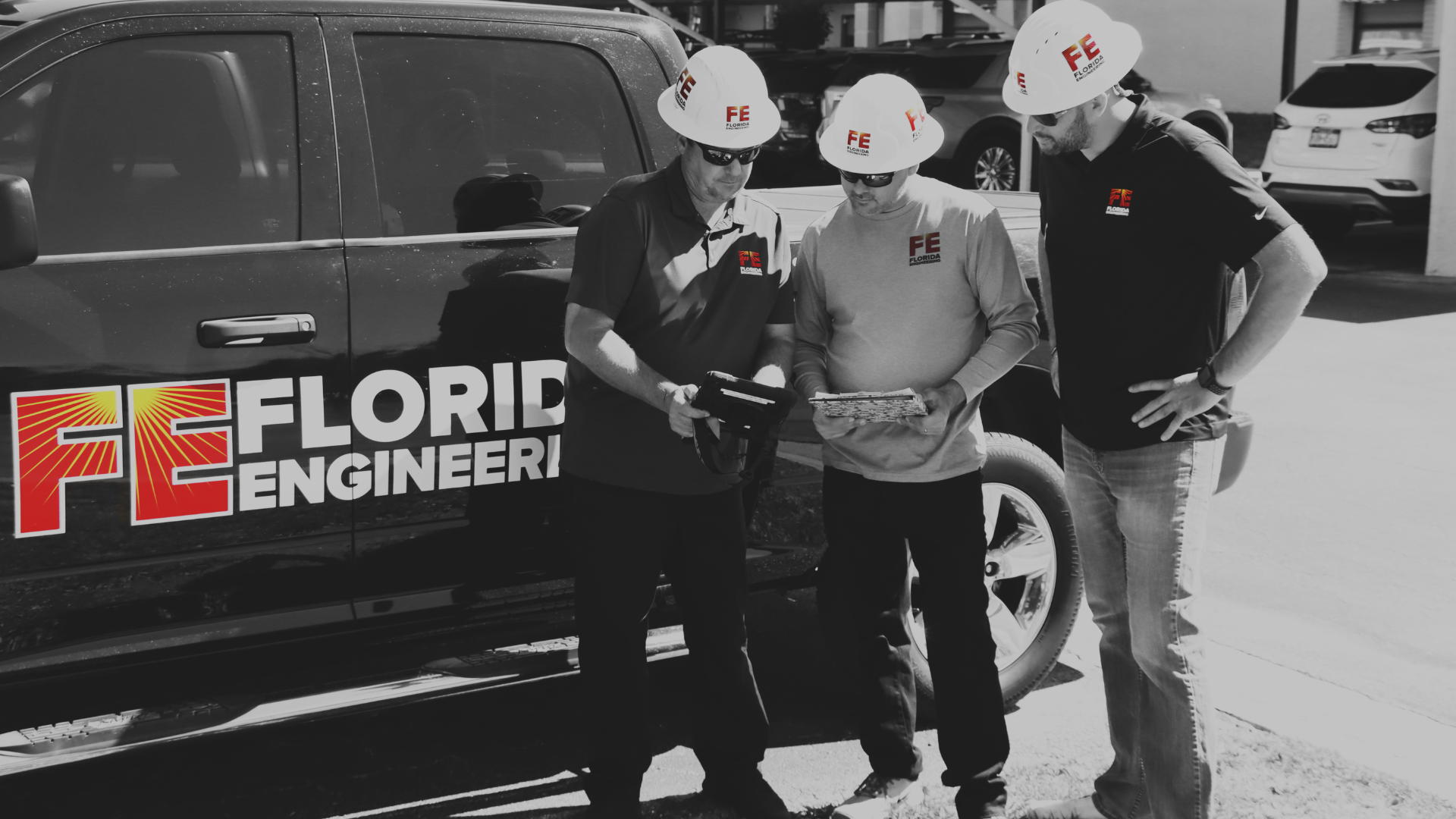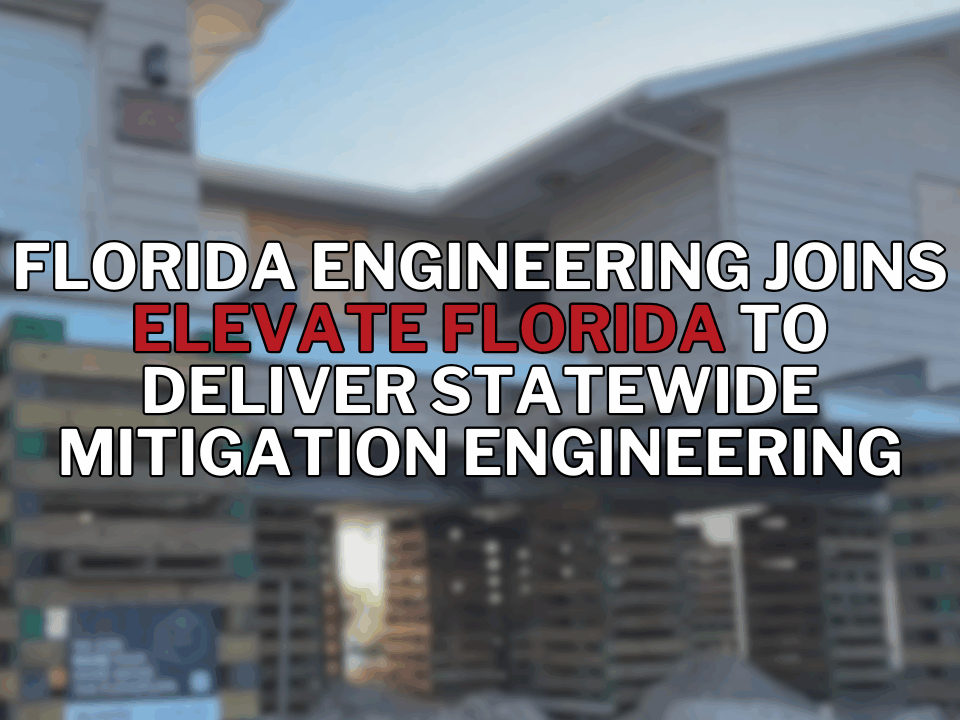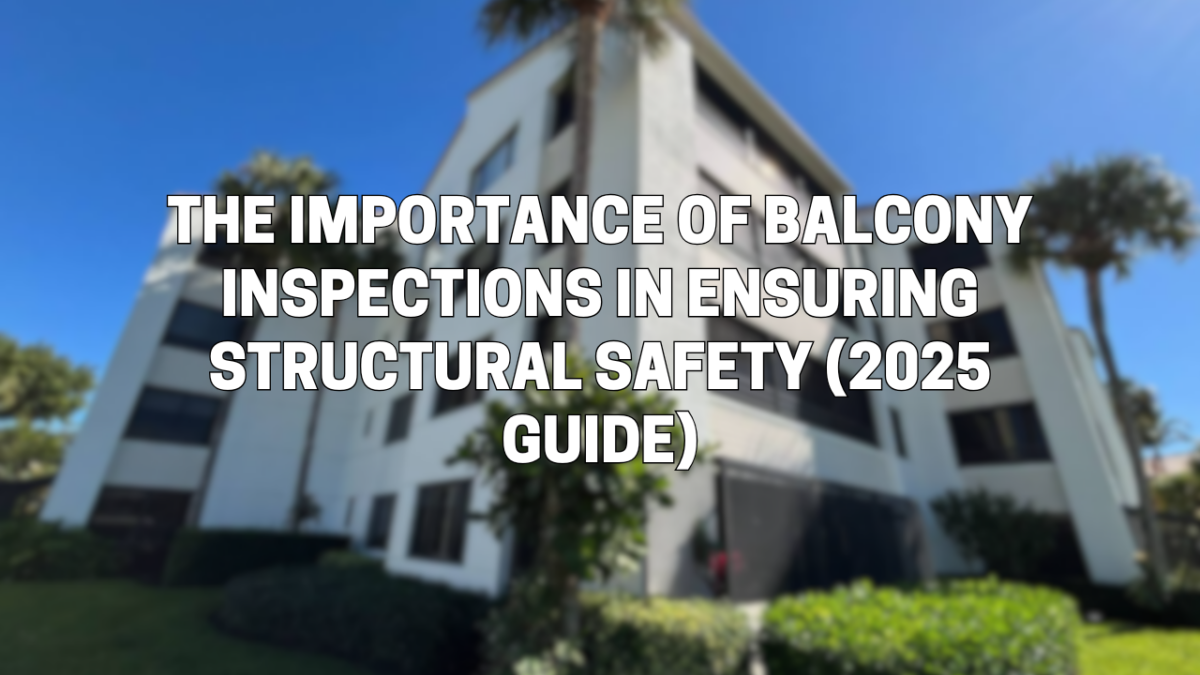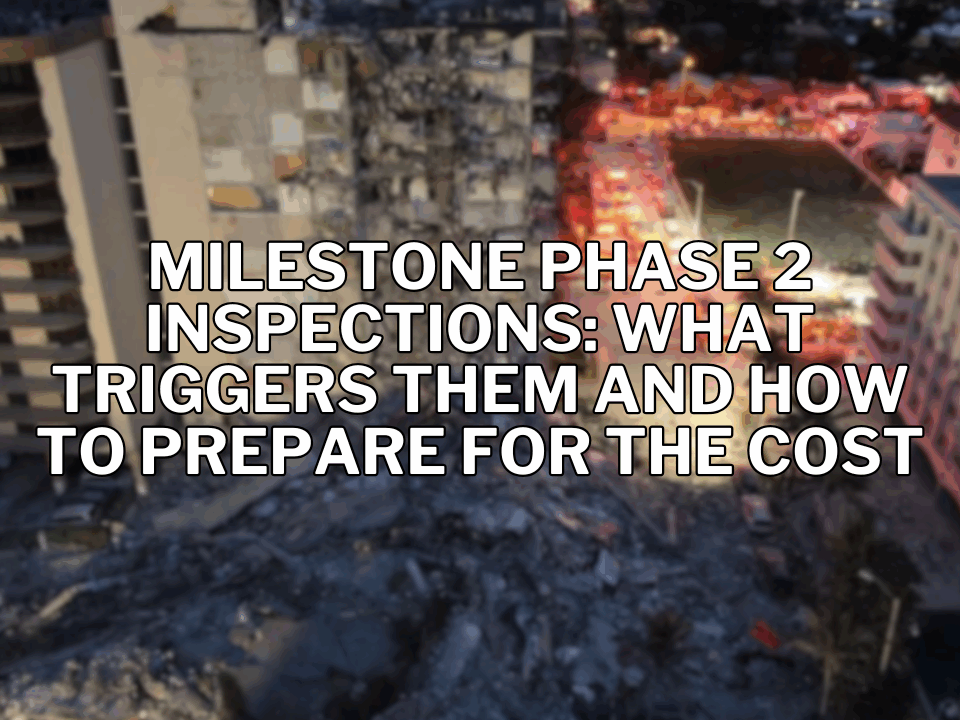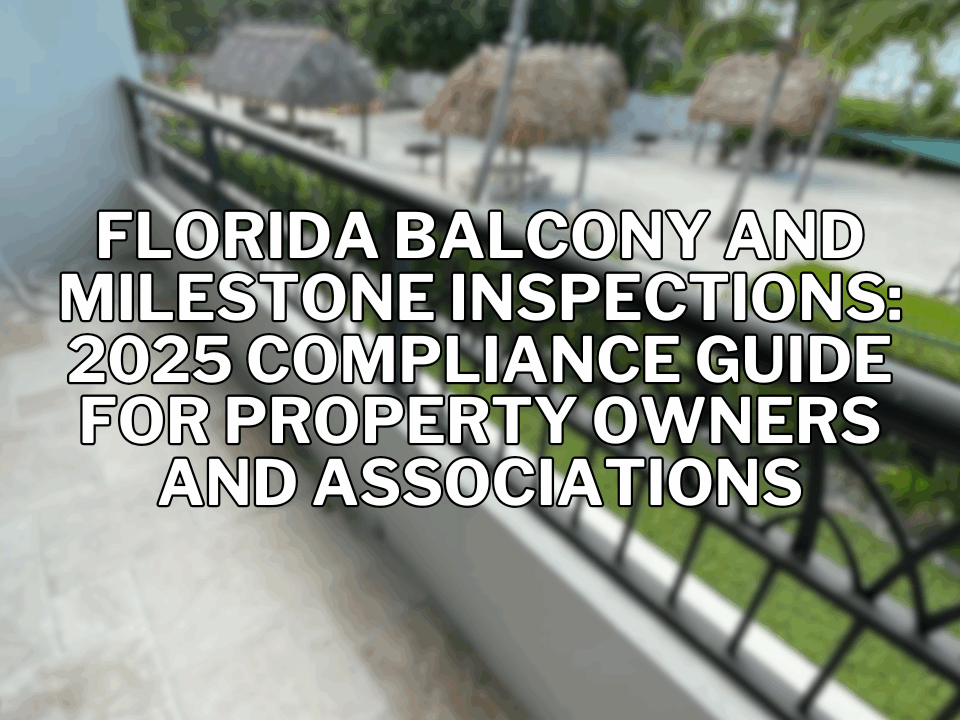Balcony inspections are critical for maintaining the structural integrity, safety, and functionality of balconies in residential, commercial, and multi-family buildings. This process is especially vital in regions like Florida, where environmental factors such as humidity, salt air, and hurricanes accelerate structural deterioration. With Florida’s stringent building safety codes, including regulations like SB 4-D, routine balcony inspections are not just best practices—they are legal requirements.
In this article, we’ll explore the key components of balcony inspections, why they’re essential, and how regular assessments can protect both lives and property.
Table of Contents
- Key Components of a Balcony Inspection
- Visual Examination
- Structural Assessment
- Waterproofing and Drainage
- Subsurface and Material Testing
- Code Compliance Verification
- Documentation and Reporting
- Why Balcony Inspections Are Crucial
- Florida’s Building Safety Codes and SB 4-D Compliance
- Conclusion
1. Key Components of a Balcony Inspection
1.1 Visual Examination
The first step in any balcony inspection is a thorough visual assessment to identify surface-level issues:
- Surface Condition: Inspect for cracks, chips, spalling concrete, rust stains, and signs of water intrusion, which could indicate deeper structural problems.
- Railings and Guardrails: Check for stability, corrosion, loose fasteners, and compliance with height and spacing regulations.
- Flooring: Look for warping, soft spots, or deterioration that could suggest moisture penetration or wood rot, common issues in Florida’s humid climate.
1.2 Structural Assessment
Beyond surface checks, inspectors evaluate load-bearing components:
- Load-Bearing Elements: Examine beams, columns, and support brackets for corrosion, rust, or structural damage.
- Connections and Fasteners: Assess the condition of anchors, bolts, and welds to ensure they’re secure and not compromised by rust or metal fatigue.
- Cantilevered Balconies: Special attention is given to these structures, where the floor extends beyond the supporting wall, making them more susceptible to overloading and sagging.
1.3 Waterproofing and Drainage
Water damage is a leading cause of balcony deterioration:
- Membranes and Sealants: Inspect for cracks, gaps, or deteriorating waterproof membranes that could allow water intrusion.
- Drainage Systems: Ensure proper drainage to prevent water pooling, which accelerates structural decay and fosters mold growth.
1.4 Subsurface and Material Testing (If Needed)
In cases where hidden damage is suspected, more advanced techniques are used:
- Destructive Testing: Involves removing small sections of materials to examine hidden components, especially when signs of deterioration are evident.
- Non-Destructive Testing: Techniques like infrared thermography or moisture meters detect hidden moisture or structural weaknesses without damaging the balcony.
1.5 Code Compliance Verification
Inspectors verify that balconies meet current safety codes:
- Load Capacity: Confirm the structure can handle the designated load without risk of collapse.
- Railing Heights and Spacing: Ensure compliance with local regulations, particularly in high-rise buildings subject to Florida’s updated building codes under SB 4-D.
1.6 Documentation and Reporting
A detailed report is prepared post-inspection:
- Photographic Evidence: To document damages, deterioration, or code violations.
- Inspection Report: Outlines findings, recommended repairs, and urgency levels, serving as an official record for property owners and regulatory bodies.
2. Why Balcony Inspections Are Crucial
Life Safety
The foremost reason for balcony inspections is to prevent accidents due to structural failures. Tragedies like the Surfside condominium collapse in 2021 have highlighted the dire consequences of neglecting structural assessments.
Regulatory Compliance
Florida statutes, especially SB 4-D, mandate regular structural inspections for multi-story buildings. Failure to comply can lead to hefty fines and legal liabilities.
Property Value
Well-maintained balconies enhance a building’s aesthetic and functional appeal, significantly influencing real estate value. Regular inspections ensure properties remain market-ready.
Liability Reduction
Timely inspections and repairs reduce the risk of lawsuits related to accidents or injuries caused by structural failures, protecting property owners and managers from legal and financial repercussions.
3. Florida’s Building Safety Codes and SB 4-D Compliance
Following the Surfside tragedy, Florida enacted SB 4-D to strengthen building safety protocols:
- Mandatory Milestone Inspections: Buildings over three stories must undergo milestone inspections at 30 years of age, or 25 years if within three miles of the coast.
- Phase I and Phase II Inspections: Phase I involves visual assessments, while Phase II requires more invasive testing if structural deterioration is detected.
- Annual Reporting: Associations must maintain detailed records of inspections and repairs, ensuring transparency and accountability.
Balcony inspections are more than just a regulatory formality—they’re a proactive measure to safeguard lives, maintain property values, and ensure legal compliance. In Florida, where environmental conditions accelerate structural wear, routine inspections are critical. Property owners, managers, and associations should prioritize these evaluations, not just to meet legal requirements but to foster a culture of safety and responsibility.
Contact Us – The Condominium Experts Near Me – Florida’s Condominium Inspections
- Phone: 941-391-5980
- Email: contact@fleng.com
- Address: 4161 Tamiami Trail, Suite 101, Port Charlotte, FL 33952
Connect With Us
Related Services
- Milestone Inspections
- Energy Calculation Services
- 25,30,40,50,60 Year Recertifications
- Pool Engineering Services
- Turnover Inspections
[This above text is for information purposes only and does not constitute engineering or legal advice. Please consult a professional engineer and licensed attorney for any specific answers to your questions about balcony inspections and the legal obligations balcony inspections entail.]

